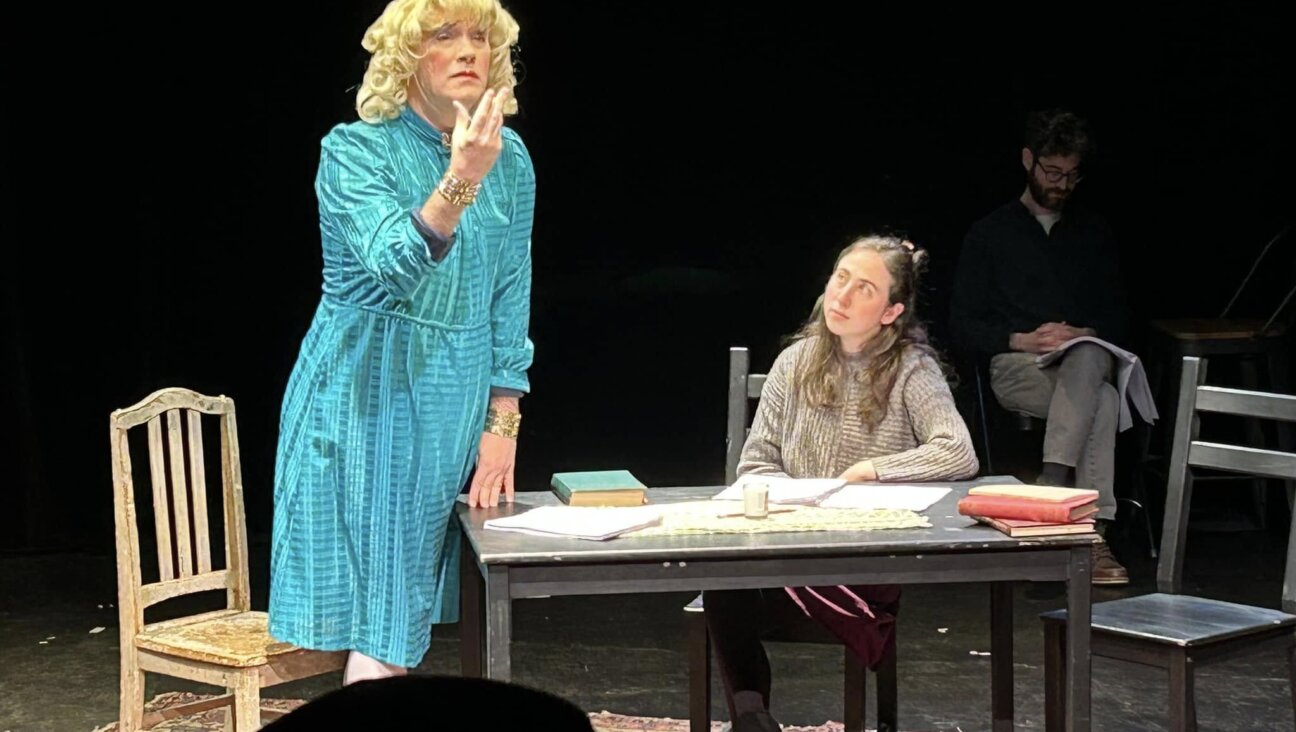The 21st century’s first Yiddish TV show is here

Image by SVT
This article originally appeared in the Yiddish Forverts.
Yiddish has had a hard time getting on television. In Israel, the language was only permitted on the radio but banned from TV except for a few one-time comedy specials. The only regularly scheduled Yiddish TV shows in history briefly appeared in Montreal in the 1970s and in Moldova in the 1990s. Now, for the first time in the 21st century, a new Yiddish-language television program has been broadcast.
“Woodski’s World,” a four-part travelogue produced by Sweden’s state television network, follows Yiddishist Tomas Woodski as he travels to four cities and talks to local Yiddish speakers. The series, released in four half-hour episodes, which follow him to Bucharest, Tel Aviv, Paris and London, can be streamed online here.
In the first episode, Woodski travels to an international Yiddish theater festival in Bucharest, where he chats with local Yiddish actors and tourists from Israel.
In London, he meets Yiddish activists Tamara Gleason and Arturo Kerbel-Shein, who describe the local Yiddishist scene. He also visits a Yiddish open mic in the city and talks to Dr. Vivi Lachs about the Yiddish songs once sung by Jewish immigrants in Whitechapel, London.
In the third episode Woodski visits the headquarters of Yung Yiddish in the city’s central bus station where the organization’s founder Mendy Cahan shows him his collection of Yiddish books and ephemera. Woodski also talks to Yiddish activist Bella Bryks Klein as well as Zohar Weiman-Kelman, with whom he discusses queer culture and identity in Yiddish.
Finally, he visits the Paris Yiddish Center – Medem Library, where he meets director Tal Hever Chybowski and chats with several local scholars affiliated with the center including Ri J. Turner and Valentina Fedchenko.
Yiddish is an official minority language of Sweden and as a result receives government support. Besides “Woodski’s World” Sweden has sponsored Yiddish radio shows, and even Yiddish sex-ed brochures.
A message from our Publisher & CEO Rachel Fishman Feddersen

I hope you appreciated this article. Before you go, I’d like to ask you to please support the Forward’s award-winning, nonprofit journalism during this critical time.
At a time when other newsrooms are closing or cutting back, the Forward has removed its paywall and invested additional resources to report on the ground from Israel and around the U.S. on the impact of the war, rising antisemitism and polarized discourse.
Readers like you make it all possible. Support our work by becoming a Forward Member and connect with our journalism and your community.
— Rachel Fishman Feddersen, Publisher and CEO
























